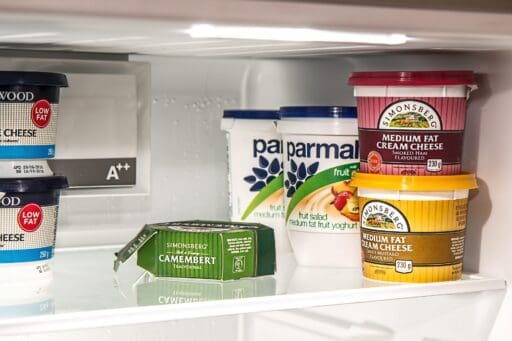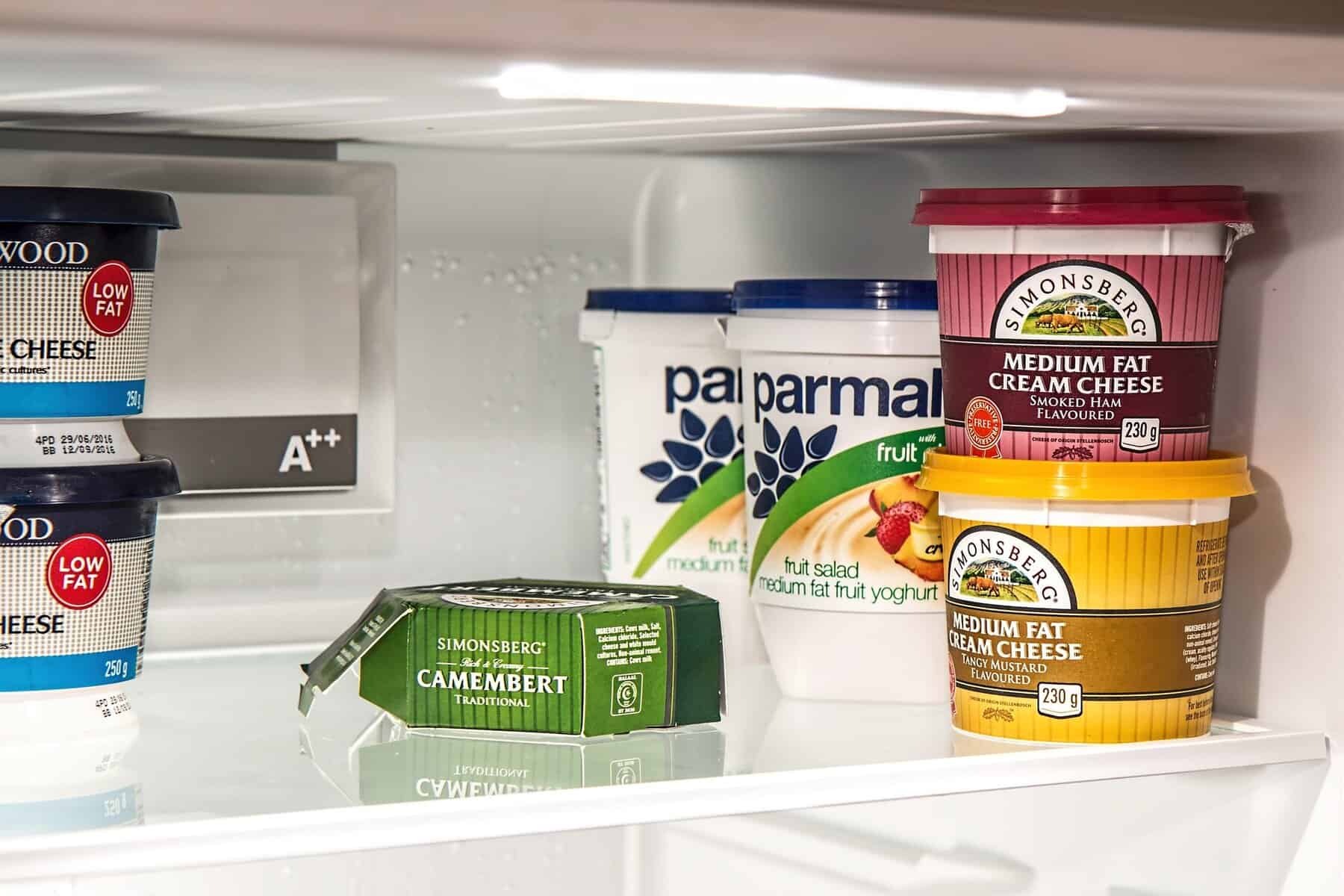Table of Contents Show
Cream cheese lovers, this one’s for you. Whether it’s spread on your morning bagel, blended into a rich cheesecake, or swirled into a creamy pasta sauce, cream cheese has earned its spot in many kitchens. But the big question is: Is cream cheese healthy? Like most indulgent foods, the answer depends on how you enjoy it.
Let’s break down the pros, cons, and nutritional facts to see where cream cheese fits into a balanced diet.
The Basics: What’s in Cream Cheese?
Traditional cream cheese is made from a mix of milk, cream, and cheese cultures, sometimes with added stabilizers like carob bean gum. Its appeal? That luscious, tangy, smooth texture.
Nutritionally, a one-ounce serving of regular cream cheese is around 99 calories with about 10 grams of fat,1 most of which is saturated fat.
Protein is 2 grams, and there are small amounts of vitamins and minerals like vitamin A, calcium, and phosphorus.2 While that creamy spread has some nutrients, it’s the high fat (especially saturated fat) that’s the concern.
Cream Cheese and Heart Health: Friend or Foe?
Saturated fat has been linked to heart disease for a long time, so many people avoid full-fat dairy. But newer research is showing that full-fat dairy isn’t as strongly tied to heart disease risk as we thought.3
That said, moderation is key. Balancing cream cheese with heart-healthy fats from sources like avocados, nuts, and olive oil is a good idea. The real issue isn’t cream cheese itself—it’s how you use it.
Cream Cheese vs. Other Dairy
Compared to protein-packed dairy like Greek yogurt or cottage cheese, cream cheese falls short on protein and is higher in calories and fat. But it’s also richer and used differently—think of it more as a flavor enhancer than a protein source. According to Dr. Michael Murray, N.D., both Greek yogurt and cream cheese perks of their own.
Alternatives like Neufchâtel cheese (which has less fat) or goat cheese can give you similar textures with slightly different nutritional profiles.4 Plant-based cream cheese made from nuts or tofu is also becoming popular, giving dairy-free eaters an option that’s kinder to saturated fat.5
Can Cream Cheese Be Part of a Healthy Diet?
The good news is, cream cheese isn’t off-limits. When eaten in moderation, it can be part of a balanced diet. Small servings can give you:
- Calcium for bone health
- Satisfying fats that keep you full
- Probiotics (in some varieties) for gut health
The key is portion control. A thin layer on a bagel or a dollop in a sauce is fine. Problems arise when portions get out of hand or it becomes a daily staple without balance.
Healthier Ways to Enjoy Cream Cheese
If you want to enjoy cream cheese without overdoing it, try:
- Whipped cream cheese which is lighter and lower in calories.
- Low-fat versions like Neufchâtel.
- Plant-based cream cheese for a dairy-free, lower-fat option.
- Mix with nutrient-dense foods like smoked salmon, cucumbers, or whole grain crackers.
- Use as a base for veggie-packed dips instead of heavier, mayo-based spreads.
Don’t Forget Food Safety
Cream cheese is perishable and should always be refrigerated.6 It has a relatively short shelf life once opened, so check expiration dates. Freezing is an option, but it can alter the texture, making it less ideal for spreading.
Final Verdict: Is Cream Cheese Healthy?
In the grand scheme of things, cream cheese isn’t a “superfood,” but it’s also not a villain. Like butter or chocolate, it belongs in the “sometimes” category—a delicious indulgence that can fit into a balanced lifestyle when enjoyed mindfully.
So go ahead, spread that cream cheese on your bagel. Just remember, moderation is the secret ingredient.
References
- Sharon O, (2019). Is Cream Cheese Healthy? Nutrition, Benefits, and Downsides [Online]. Available at: https://www.healthline.com/nutrition/is-cream-cheese-healthy-nutrition-benefits-and-downsides (Accessed: 9 June 2025). ↩︎
- Draxe.Com [Online]. 520: Web server is returning an unknown error. Available at: https://draxe.com/nutrition/cream-cheese/ (Accessed: 9 June 2025). ↩︎
- K. Zeratsky, (2024). Full-fat dairy foods and cardiovascular disease: Is there a connection? [Online]. Mayo Clinic Press. Available at: https://mcpress.mayoclinic.org/dairy-health/full-fat-dairy-foods-and-cardiovascular-disease-is-there-a-connection/ (Accessed: 9 June 2025). ↩︎
- ScienceDirect [Online]. Available at: https://www.sciencedirect.com/topics/agricultural-and-biological-sciences/neufchatel-cheese (Accessed: 9 June 2025). ↩︎
- Nutritional Profiles of Non-Dairy Plant-Based Cheese Alternatives [Online]. PMC . Available at: https://pmc.ncbi.nlm.nih.gov/articles/PMC8952881/ (Accessed: 9 June 2025). ↩︎
- AskUSDA [Online]. Available at: https://ask.usda.gov/s/article/Does-all-cheese-need-to-be-refrigerated (Accessed: 9 June 2025). ↩︎







